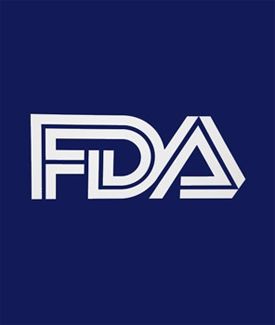FDA Approves Nivolumab for Treating Liver Cancer
The FDA has granted accelerated approval to nivolumab (Opdivo) for the treatment of patients with hepatocellular carcinoma who have previously received sorafenib.
CheckMate-040 reported a 14.3% response rate in patients with hepatocellular carcinoma

The US Food and Drug Administration (FDA) has granted accelerated approval to nivolumab (Opdivo) for the treatment of patients with hepatocellular carcinoma (HCC) who have previously received sorafenib. The recommended dose is 240 mg delivered intravenously over a 60-minute infusion every 2 weeks, until either disease progression or unacceptable toxicity.
“Unfortunately, the majority of HCC patients are diagnosed with advanced-stage disease and are not candidates for potentially curative surgical interventions,” said Adrian M. Di Bisceglie, MD, of the Saint Louis University Liver Center, in a press release. “More options are needed for advanced-stage HCC patients who have failed prior systemic therapy.”
The trial that led to the approval, CheckMate-040, included a phase I/II portion that tested nivolumab in 154 HCC patients (median age, 63; range, 19–81) who had all been previously treated with sorafenib. Patients were treated with 3-mg/kg nivolumab IV every 2 weeks. In total, 22 patients (14.3%) responded to nivolumab (95% CI, 9.2%–20.8%), including 3 complete responses (1.9%) and 19 partial responses (12.3%). Median time to response was 2.8 months. The vast majority of responders (91%) had a duration of response that was 6 months or greater, with more than half (55%) exhibiting a duration of response of 12 months or greater. Responses were observed regardless of PD-L1 levels.
“In recent years, there has been growing interest in leveraging immuno-oncology knowledge and discoveries to add to the treatment options available for patients with advanced-stage liver cancer,” said lead investigator Anthony B. El-Khoueiry, MD, of the USC Norris Comprehensive Cancer Center in Los Angeles, in a press release. “The approval of Opdivo provides us with an encouraging approach and a new treatment option for appropriate patients with HCC following prior systemic therapy.”
The most common adverse events (AEs) in CheckMate-040 were abdominal pain (34%), cough (23%), decreased appetite (22%), diarrhea (27%), fatigue (38%), musculoskeletal pain (36%), pruritus (27%), and rash (26%). AEs led to treatment discontinuation in 11% of patients and treatment delays in 32% of patients. Serious AEs occurred in 49% of patients, the most frequent (≥ 2%) of which were abdominal pain, ascites, back pain, deterioration of physical health, pneumonia, and pyrexia. Treatment-emergent grade 3/4 bilirubin, aspartate aminotransferase, and alanine aminotransferase occurred in 7%, 18%, and 11% of nivolumab-treated patients, respectively.
Nivolumab is also associated with a number of warnings and precautions that include colitis, embryo-fetal toxicity, encephalitis, endocrinopathies, hepatitis, immune-mediated pneumonitis, infusion reactions, nephritis, renal dysfunction, and skin reactions. In the trial, systemic corticosteroids were required in eight patients (5%) due to immune-mediated hepatitis.